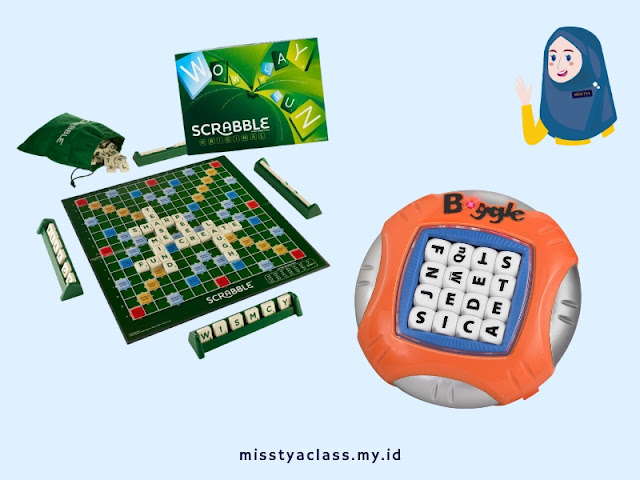Are you tired of boring grammar lessons and tedious vocabulary drills in your English class? Want to shake things up and make learning English more fun and engaging? Look no further than board games! Yes, you heard it right – board games can be an excellent tool for learning English in a fun and interactive way.
Benefits of using board games
So, what makes board games so great for English language learners? Let's dive in and explore some of the benefits of using board games in the ESL classroom.
Build student's vocabulary
First and foremost, board games are a fantastic way to build vocabulary. Many board games involve using specific words and phrases, giving learners the opportunity to learn new vocabulary in context. Whether it's a game about traveling, cooking, or solving mysteries, board games can expose learners to new words and help them remember them through repeated use.
Practice conversation skills
Board games also provide a unique opportunity to practice conversation skills. Many board games involve players interacting with each other through dialogue and negotiation, allowing learners to practice expressing their ideas and opinions in English. This can be especially helpful for learners who may be hesitant to speak up in a classroom setting.
Develop student's critical thinking skills
Another benefit of using board games is that they can help learners develop their critical thinking skills. Many board games require players to strategize and problem-solve, giving learners the opportunity to practice thinking critically in English. Games that involve logic and deduction, such as Clue or Settlers of Catan, can be particularly helpful in this regard.
Build teamwork and social skills
Board games can also be a great way to build teamwork and social skills. Many board games involve players working together towards a common goal, allowing learners to practice communication and collaboration in English. Games such as Pandemic or Forbidden Island require players to work together to overcome obstacles, which can be a great way to build camaraderie among learners.
Fun, fun, fun!
Finally, board games are simply a lot of fun! By incorporating games into the ESL classroom, learners can enjoy themselves while still improving their English skills. This can help to reduce stress and make learning English feel less like a chore and more like a fun activity.
Ways to use board games in ESL classrooms
So, how can you incorporate board games into your ESL classroom? Here are a few ideas to get you started:
Vocabulary Games:
Choose a board game that incorporates vocabulary relevant to your learners, such as Scrabble or Boggle. Encourage learners to use the words they learn in the game in conversation afterwards.
Conversation Games:
Choose a board game that involves lots of conversation and interaction between players, such as Apples to Apples or Cards Against Humanity. Encourage learners to express their opinions and ideas in English during the game.
Critical Thinking Games:
Choose a board game that requires players to think critically and strategize, such as Cluedo or The Game of Life. Encourage learners to explain their thought process in English as they play the game.
Teamwork Games:
Choose a board game that requires players to work together towards a common goal, such as Pandemic or Saboteur. Encourage learners to communicate and collaborate in English as they play the game.
***
In conclusion, board games can be a fun and effective tool for learning English in the ESL classroom. By incorporating games into your lessons, you can help learners build vocabulary, practice conversation skills, develop critical thinking skills, build teamwork and social skills, and most importantly, have fun! So, why not give it a try and level up your English learning with board games?











Menarik banget untuk board games ini, bisa saya terapkan ke anak kalau sudah besar nanti untuk melatih kosakata dalam belajar bahasa
ReplyDeletei do love board games, i usually play scrabble at home with my friends or family. btw i'm interested on boggle, i think i want one :D
ReplyDeleteJangankan buat anak-anak dan pelajar, kita yang orang dewasa aja jadi seru belajar bahasa Inggris dengan board games.
ReplyDeleteKalau aku, sukanya belajar English dengan nonton film. Cocok buatku melatih speaking, listening, dan tau frase-frase common dalam percakapan sehari-hari yang nggak bisa diterjemahkan mentah-mentah dengan bahasa Indonesia. Thanks for sharing, mbak.
boardgame is fun for english learning, kadang main sama anak-anak, btw rekomendasi dong mba untuk boardgame balita
ReplyDeleteI think learning English using the eboard concept for children is very interesting and interactive. They will not get bored quickly when they are studying
ReplyDeleteThank you for sharing, Kak.
ReplyDeleteUntuk aku yang pas-pasan bahasa inggrisnya ini, dengan adanya games seperti ini sangat membantu.